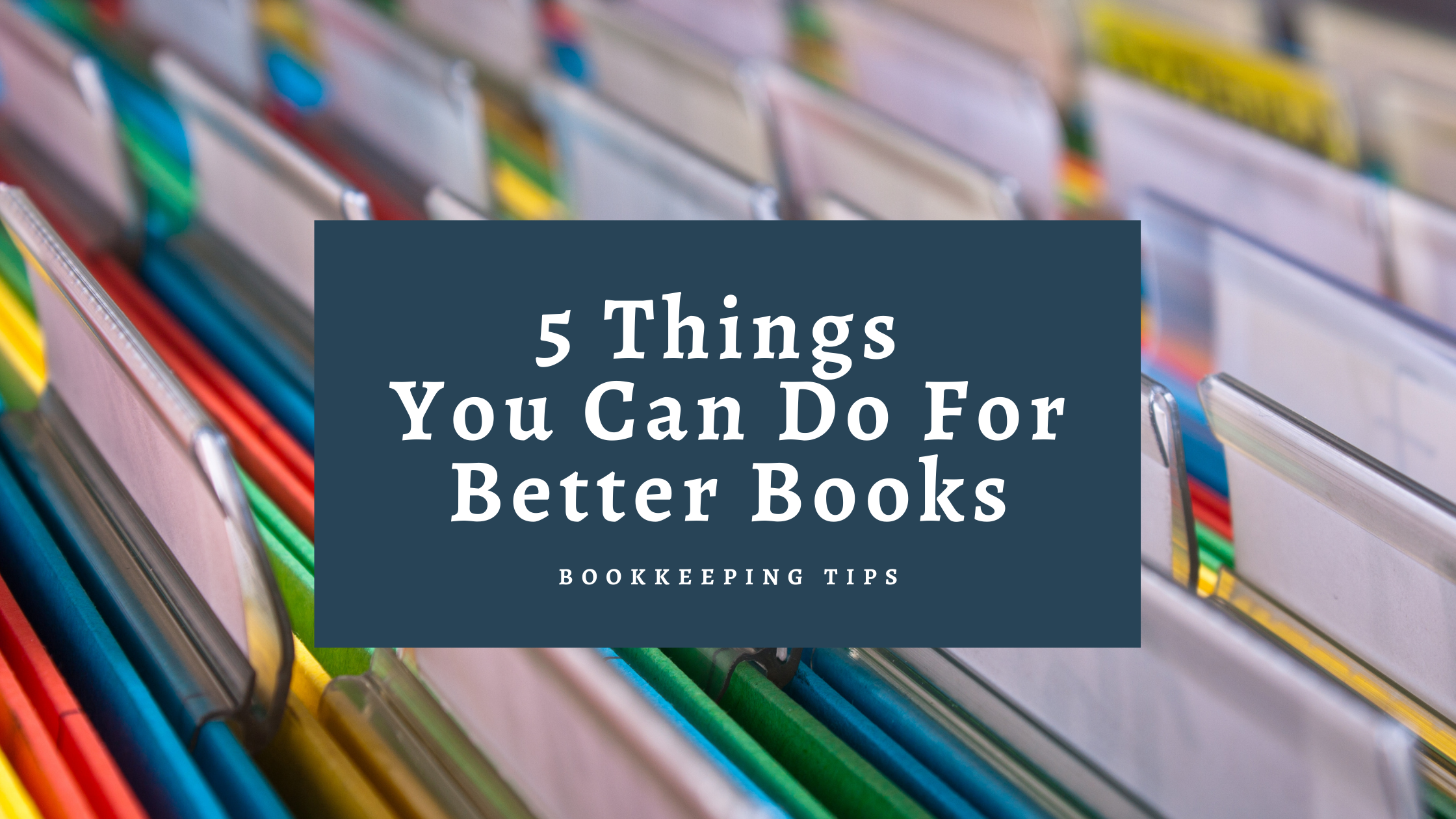Five things you can do for better books
In these uncertain times, it’s easy to feel unempowered. So we’ve got some great news for you! Here are five things every business owner can do right now for better books. Follow these simple steps and take control of your life again...at least your bookkeeping life, that is.
Stay on top of your books. We are nearly halfway through September. You should now be finishing up categorizing your August transactions. If you’re still figuring out what you spent back in February, you need a new approach. Try setting aside one hour a week on a dedicated day and time and make bookkeeping a regular habit.
Come up with a good filing system. You never know when you’re going to need to quickly produce an old statement or receipt. Save copies of everything (scanned is fine) in an easy-to-locate system. You’ll thank yourself later.
Keep your business and personal finances completely separate. No matter your legal entity, this is important to do so that you have a crystal clear distinction between business and personal finances and you are prepared in the event of an audit. Set up dedicated checking, savings, and credit card accounts for your business and use them only for business purposes.
Say hello to your tax accountant. Yes, right now! Your accountant is too important to just interact with at tax time. Check in periodically throughout the year for customized tax advice, especially during extraordinary times such as these that have important tax implications for every business owner.
Use accounting software (such as QuickBooks) to keep track of your business’ financials. If you’re using a spreadsheet to keep track of your income and expenses, you are opening the door to calculation errors, lack of an audit trail, and cumbersome invoicing and reporting (to name just a few problems). Plus, it’s annoying and takes a ton of time! Accounting software is designed specifically to streamline the bookkeeping functions of a small business. When used consistently, it gives you instant high-level reports that help with business planning. And it makes tax time a breeze!
Wondering about how to implement any of the above? We’d love to help! Please contact us for a free 30 minute consultation with our CEO.




